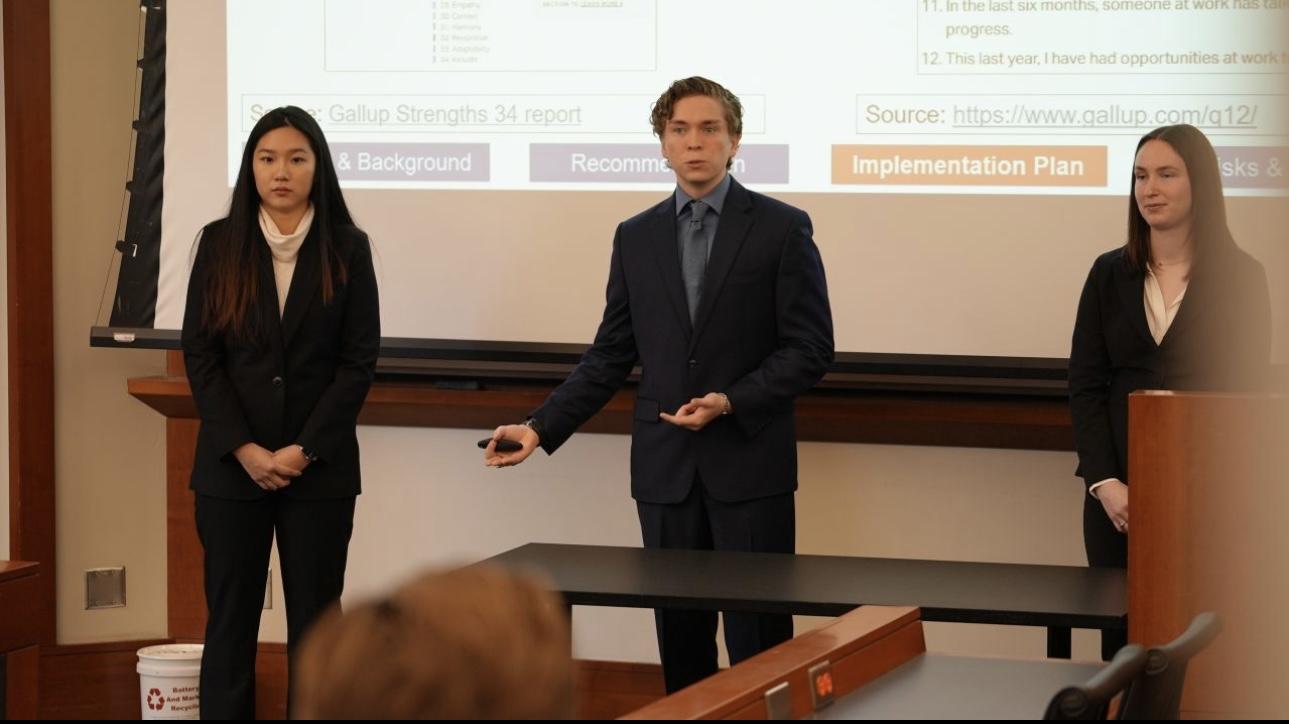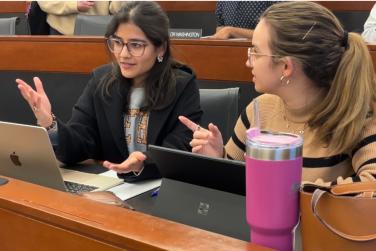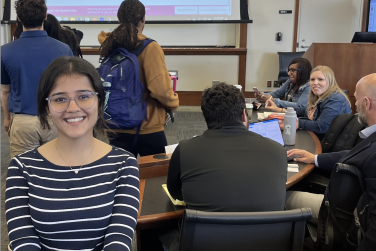
4 Ways MHRM Case Competitions Have Made Me A Better Presenter
Before starting my Master of Human Resource Management journey at Fisher, I had already built a solid foundation in public speaking and performing. I've been acting since I was ten years old, and in large part due to this hobby and passion, I was comfortable speaking in front of an audience, using vocal inflection and projection, and maintaining "stage presence." Despite this background, I am incredibly grateful that my two case competition experiences I have been a part of during grad school have taken these skills to a new level. From refining my delivery and adapting to new audiences and situations, here are a few ways these MHRM Case Competitions have strengthened my ability to present.
- Presenting Topics That I Have Not Personally Researched
In a case competition, teamwork is definitely critical. While each team member may specialize in a different aspect of the case (a certain approach, the slides themselves, running the numbers, creating the story etc.) we still need to present as one team. This means that teammates may end up presenting on sections that another teammate did the predominant research on. While this can be difficult, this has forced me to ensure I know the material I am presenting on inside and out. Judges in these competitions can ask questions and interrupt at any time, and it is my job to be a SME (Subject Matter Expert) on whatever I am presenting. Learning to quickly internalize information, ask questions to my team, and communicate with confidence has been a valuable skill I can take with me from these competitions.
2. Scripting, Rehearsing, and Delivering
For class presentations or speaking-heavy assignments, my acting background has always led me to "scripting" out everything I want to say, and ensuring I hit every point. In Case Competitions, however, I have learned that this lengthy process can take away valuable time from other preparation, and has forced me to slightly adapt how I practice presentations. Rather than my usual scripting and memorizing of points as if they were lines in a script, I now start with a detailed outline or "bullet-script" that I then gradually cut down on when practicing until I know my main points enough to speak on without notes. Rehearsing repetitively ensures I commit to putting the flow of my section to memory, and helps me create a more engaging, deliberate delivery that appears more genuine and conversational than robotic and rehearsed.
3. Finding the Balance: Where Should I look?
Eye contact, in many ways, can make or break a presentation. We've all witnessed presentations where the speaker is hidden behind an iPad, podium, or notes, rarely physically engaging with their audience. When on stage, it's easy for me to pick a spot in the dark or an audience member to look at when acting, but I've admittedly struggled to pick where to look when presenting. These Case Competitions have taught me to divide my focus between the judges, the presentation, and the back of the room. Relying too heavily on one area can make a presenter seem either creepy, unprepared, or distracted, and through practice, I've learned to look at different focal points strategically, connecting it with my delivery and including the whole audience.
4. Thinking on My Feet
No matter how much you prepare, Q&A sessions can be unpredictable. Case Competitions have trained me to anticipate tough (or frequent) questions and to respond with composure and confidence. Just like improv, quick thinking and adaptability are crucial in these moments. I've been able to learn how to confidently acknowledge a judge's questions, buy time to think when needed, use evidence/appendixes and provide a detailed, structured approach, even if I don't have all the details. This skill will be valuable in the future in any HR role, especially when dealing with relevant stakeholders, employees, or candidates.
Through case competitions, I've become a more polished and confident presenter. While my background has helped with the foundation, these experiences have helped strengthen my ability to present technical and HR-related content, adjust my style, and engage with others professionally. These skills are critical in the business world and in my day-to-day life, and I am very grateful for the opportunities I have had to refine them.







